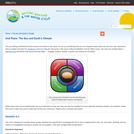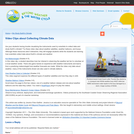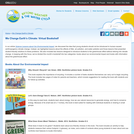
In this article, teachers find two unit plans (grades K-2 and 3-5) that use resources featured in the science and literacy articles in the magazine. The unit plans are modeled after the five key steps in the learning cycle: engage, explore, explain, expand, and assess, or evaluate. The plans are aligned with the science content standards of the National Science Education Standards and the English language arts standards of the National Council of Teachers of English and the International Reading Association. The plans appear in the free, online magazine Beyond Weather and the Water Cycle.
- Subject:
- Chemistry
- Education
- English Language Arts
- Geoscience
- Physical Science
- Physics
- Reading Informational Text
- Space Science
- Material Type:
- Lesson Plan
- Teaching/Learning Strategy
- Unit of Study
- Provider:
- Ohio State University College of Education and Human Ecology
- Provider Set:
- Beyond Weather and the Water Cycle
- Author:
- Jessica Fries-Gaither
- National Science Foundation
- Date Added:
- 05/30/2012


